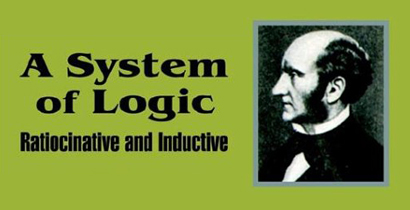Books
A System of Logic, Ratiocinative and Inductive – John Stuart Mill

There is a great diversity among authors in the modes which they have adopted of defining logic, as in their treatment of the details of it. This is what might naturally be expected on any subject on which writers have availed themselves of the same language as a means of delivering different ideas. Ethics and jurisprudence are liable to the remark in common with logic. Almost every writer has taken a different view of some of the particulars which these branches of knowledge are usually understood to include; each has so framed his definition as to indicate beforehand his own peculiar tenets, and sometimes to beg the question in their favor.

